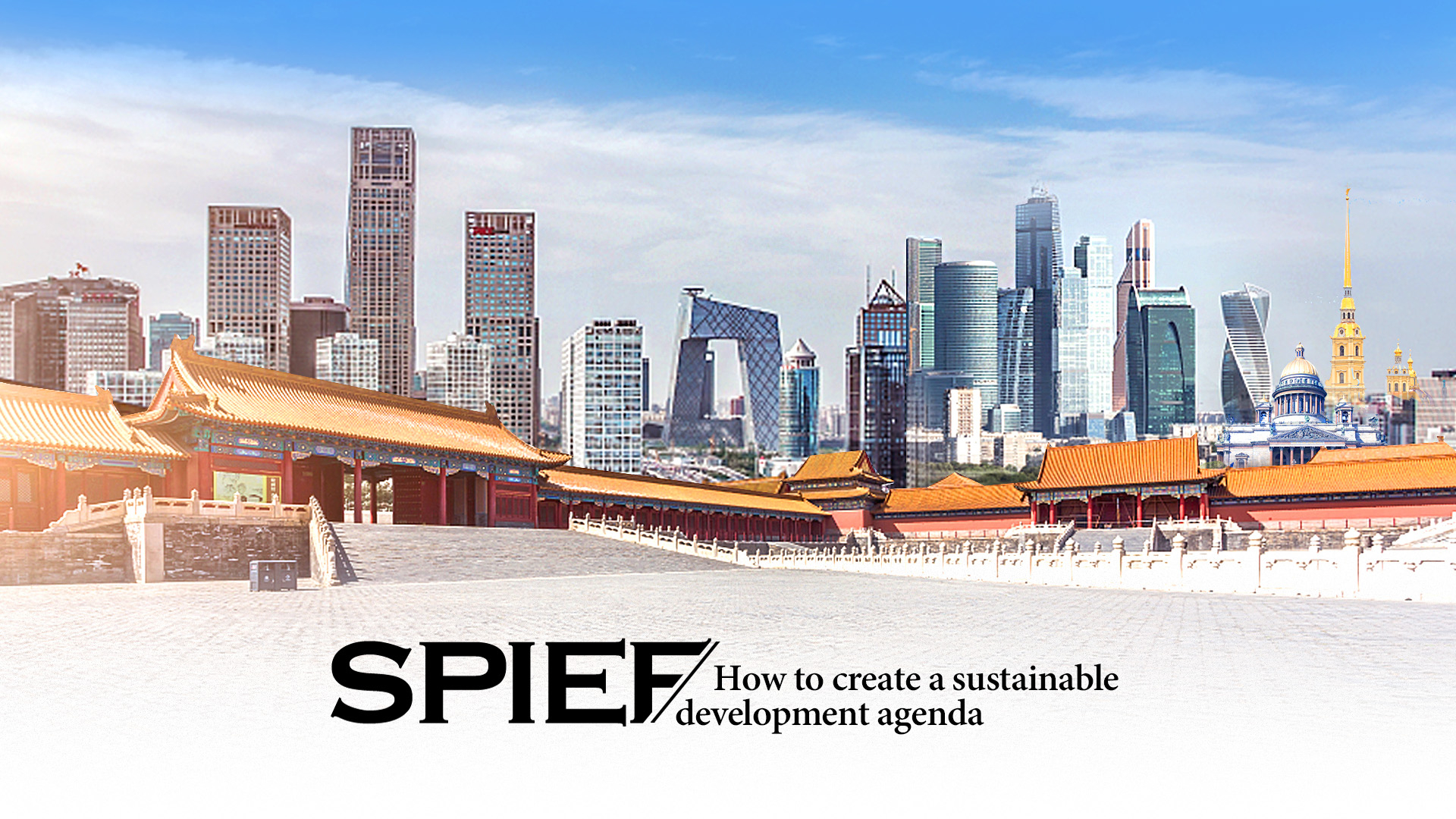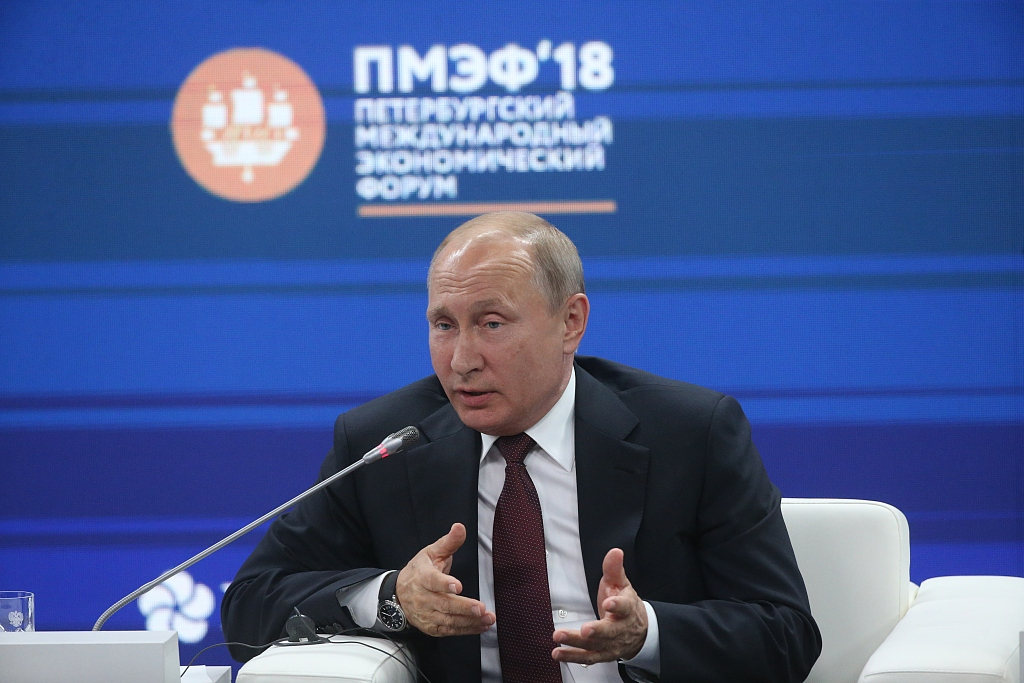
Opinion
16:30, 04-Jun-2019
What can be expected of SPIEF?
Updated
22:09, 04-Jun-2019
Evgeny Kosolapov

Editor's note: Evgeny Kosolapov is a China representative of the Skolkovo Innovation Center. The article reflects the author's opinion, and not necessarily the views of CGTN.
This year's St. Petersburg International Economic Forum (SPIEF) will be attended by 12,000 people from 140 countries from June 6 to 8 to discuss sustainable development.
Issues of the current state and prospects of sustainable development of the global economy are particularly relevant today, as there are many events in the world that continue to influence the world economy: the transformation of international economic associations, growing social inequality, unstable trade and political relations. In addition, the topic of sustainable development is also relevant from the point of view of environmental conservation, rational exploitation of natural resources, and satisfying needs without detriment to future generations.
The business program will consist of four thematic parts, involving topics from world economy to technology. In addition, business dialogues with delegations from China, the U.S., France and others.
A significant part of the business program will be devoted to education. At the session on future competencies, experts will discuss how to revise our understanding of human development and the education system in order to prepare a person to be successful in 2050 and how a young professional can implement full-fledged lifelong learning to develop future competencies after high school.

A cross-border bridge connecting Russia's Blagoveshchensk and China's Heihe is under construction in Blagoveshchensk, Russia, May 31, 2019. /VCG Photo
A cross-border bridge connecting Russia's Blagoveshchensk and China's Heihe is under construction in Blagoveshchensk, Russia, May 31, 2019. /VCG Photo
Cooperation between higher education and the business communities as a key to successful innovation development of the economy and the social sector in general and support for youth technology entrepreneurship in particular will be considered in one of the sessions by representatives of science and business. Thanks to such dialogue platforms within the framework of the largest Russian and international economic forums, young entrepreneurs will meet and talk with representatives of the scientific community and business leaders, share their ideas and projects, and also get a unique experience.
A large business that supports youth technology entrepreneurship can, on the one hand, minimize risks in the development of technological developments and, on the other hand, solve the issue of attracting talented young people who in our country have all the tools for successful self-realization.
In the course of another session, educational startups will be considered as a new driver for the transformation of this sphere. Here, participants will also discuss support for start-ups and the specifics of finding investors and business angels.

Russian President Vladimir Putin speaks during a meeting at the 2018 Saint Petersburg International Economic Forum in Saint Petersburg, Russia, May 25, 2018. /VCG Photo
Russian President Vladimir Putin speaks during a meeting at the 2018 Saint Petersburg International Economic Forum in Saint Petersburg, Russia, May 25, 2018. /VCG Photo
In addition, the issue of attracting investment for projects will be explored in detail by participants in the business game model "Russia and the World: Creating Competitiveness 4.0." Attracting investment today is among the key conditions for achieving sustainable economic growth.
The investment attraction model is an interactive game for students, young professionals and entrepreneurs who are interested in issues of investment policy and technological cooperation between countries. The model is aimed at connecting young people to study the issue of attracting investments, developing foreign economic relations and implementing a strategy for Russia's socio-economic development.
Participants of the game will study how to attract investment and develop innovative ways to keep up with the changing technological structure, analyze the opportunities and challenges of international cooperation that countries face in the Fourth Industrial Revolution, and develop new ways of interaction with the goal of developing national economies and strengthen foreign economic relations.
With the rise of populism and the global economic slowdown, it is expected that SPIEF can share insight over investment, drive bilateral and multilateral trade exchanges and inject momentum into the world economy.
Read more:
(If you want to contribute and have specific expertise, please contact us at opinions@cgtn.com.)

SITEMAP
Copyright © 2018 CGTN. Beijing ICP prepared NO.16065310-3
Copyright © 2018 CGTN. Beijing ICP prepared NO.16065310-3